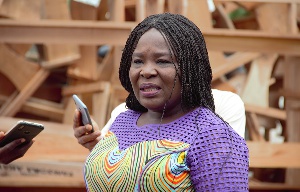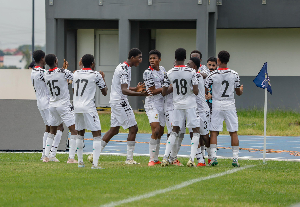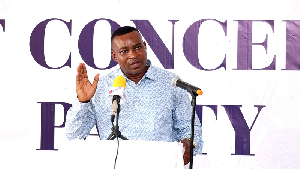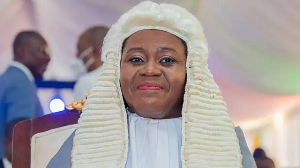(A GNA Feature by Mildred Siabi-Mensah)
Takoradi, Jan. 28, GNA - The governance process usually starts from th= e grassroots and then scales up. Obviously, therefore, when the foundation is weak the process will definitely suffer a major setback which can hamper development. The district level elections forms a crucial part of the democratization process in our country and must be given the needed attention. It is at this level that the citizenry are able to directly interact with their representatives and become familiar with their socio-economic needs as well as finding a common ground for solutions. The relationship is further strengthened by the fact that the electorate live with their representatives in the same community unlike other forms of governance where elected candidates live far off and only visit during funerals and campaigns with little or no bond between they and those who elected them.
The District level Elections although not popular in the past, had for this time round gained a considerable amount of attention and notoriety which behoves all stakeholders to rethink and sharpen the process with the right kind of sword for a better Ghana.
The 2010 local elections will go down in history maybe as one of the mess-ups the Electoral Commission had committed in its existence so far. The nationwide mess-up cannot for any reason be underestimated after several assurances by the Commission about its capability to conduct the elections on the scheduled date - December 28 2010.
The country for the second time witnessed more than a one-time voting process not for a run-off as happened in the 2008 general elections or a referendum which may occur during or after the normal voting pattern for a good reason, but merely due to the delay of ballot papers and, perhaps, the non-preparedness of the EC to carry out the exercise. Mr Eric Osae Oduro, Senior Lecturer at the Institute of Local Government Studies, sees the District Level Elections as a yardstick for measuring the country's growth in democracy.
He observed that the DLE served as a platform where the electorate wer= e offered direct involvement in the process and so must be given the needed attention.
Mr Steve Opoku-Mensah, Western Regional Director of EC, put it simply: "The EC has suffered, Ghana has also suffered and the electorate has suffered the most". He maintained that the delay in passing the legislati= ve Instrument on the Local Government Act was a contributory factor to the mishap and prayed that such unfortunate incidents will not happen again. "There was no way we could have postponed the elections because the assemblies are given a four-year mandate and so fresh elections needed to b= e conducted to enable the assemblies to function".
Mr opoku-Mensah said the changes that cropped up were not the problem but the time-limit. 93The LI was passed in November and so we had only one month to plan for the elections", he added.
Opinions of Friday, 28 January 2011
Columnist: GNA














